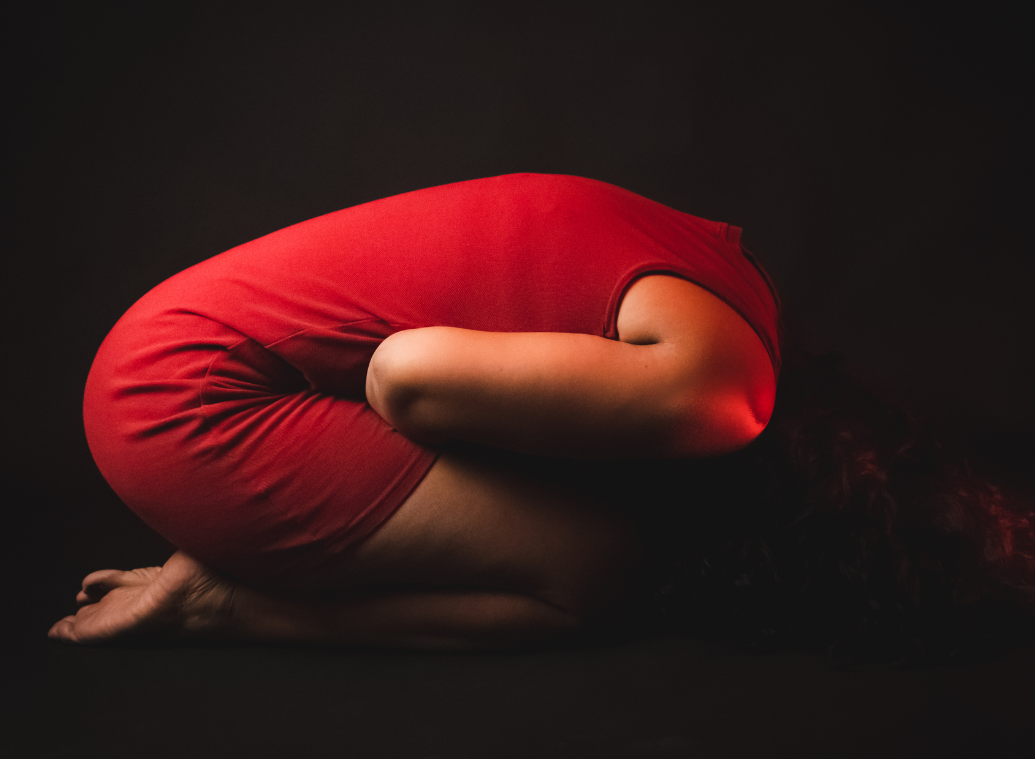- Home
- Forums
- Fibromyalgia Forum
- Living with fibromyalgia
- How do you manage your fibromyalgia flare-ups?
Patients Fibromyalgia
How do you manage your fibromyalgia flare-ups?
- 121 views
- 0 support
- 16 comments
All comments
Go to the last comment
![]()
toomuchpain
Good advisor
![]()
toomuchpain
Last activity on 10/18/2022 at 6:00 PM
Joined in 2018
35 comments posted | 18 in the Fibromyalgia Forum
1 of their responses was helpful to members
Rewards
-
Good Advisor
-
Contributor
-
Messenger
-
Explorer
Thank you Lee for sharing. I enjoyed reading this. Listening to your body is key and knowing when is too much and when to rest and/or push a bit forward.
![]()
fibrome
Good advisor
![]()
fibrome
Last activity on 02/23/2024 at 12:23 PM
Joined in 2019
22 comments posted | 12 in the Fibromyalgia Forum
Rewards
-
Good Advisor
-
Contributor
-
Messenger
-
Explorer
4 and 5 are the hardest to come by, but once you can accept and embrace the changes, I think you have arrived at the turning point! There will always be ups and downs though. Sending well thoughts to everyone dealing with this condition.

Edythe
Good advisor
![]()
Edythe
Last activity on 01/02/2023 at 5:26 PM
Joined in 2020
20 comments posted | 8 in the Fibromyalgia Forum
2 of their responses were helpful to members
Rewards
-
Good Advisor
-
Contributor
-
Explorer
-
Friend
This helps. Thank you! Has anyone else experienced both fibromyalgia and neuropathic pain?
See the signature
Edythe Anstey Hanen
Close all
See the responses
![]()
Sparky71
![]()
Sparky71
Last activity on 01/26/2026 at 6:13 PM
Joined in 2023
8 comments posted | 1 in the Fibromyalgia Forum
1 of their responses was helpful to members
Rewards
-
Explorer
-
Evaluator
@Edythe yes I have and long covid. I have learned what my limitations are and live within them. Pacing helps a lot especially controlling flareups.
Hide the responses
![]()
pinsnneedles
![]()
pinsnneedles
Last activity on 06/23/2022 at 4:05 PM
Joined in 2020
4 comments posted | 4 in the Fibromyalgia Forum
1 of their responses was helpful to members
Rewards
-
Explorer
@Edythe Yes, I have both of those! I feel it in my shoulder and it shoots down my arms. It's awful. I was originally told it was peripheral neuropathy, but then a few years ago my doctor told me the clinical definition had changed and it was no longer considered that.

Edythe
Good advisor
![]()
Edythe
Last activity on 01/02/2023 at 5:26 PM
Joined in 2020
20 comments posted | 8 in the Fibromyalgia Forum
2 of their responses were helpful to members
Rewards
-
Good Advisor
-
Contributor
-
Explorer
-
Friend
@pinsnneedles
Have you found any relief at all? You can Google ConsultQD: Why Fibromyalgia is Neuropathic for some good info. I have just discovered I also have costochondritis which is fibromyalgia chest pain (muscles and bones). I figured this out myself with research. There is info out there but not much about how to get relief. Frustrating. If you Google Healthline you can get a fair bit of info. I would love to hear if you find any answers.
See the signature
Edythe Anstey Hanen
![]()
pinsnneedles
![]()
pinsnneedles
Last activity on 06/23/2022 at 4:05 PM
Joined in 2020
4 comments posted | 4 in the Fibromyalgia Forum
1 of their responses was helpful to members
Rewards
-
Explorer
@Edythe Thank you for the article, I'll give it a read. Not really, I've been on cymbalta with middling results. I'm starting to look into other medications or even alternative therapies at this point. Yes, the frustration is real. I have an appointment to see my doctor soon, so maybe he'll have something new!

Edythe
Good advisor
![]()
Edythe
Last activity on 01/02/2023 at 5:26 PM
Joined in 2020
20 comments posted | 8 in the Fibromyalgia Forum
2 of their responses were helpful to members
Rewards
-
Good Advisor
-
Contributor
-
Explorer
-
Friend
@pinsnneedles
Would love to hear if you hear anything new. I'm thinking of alternative therapies too. I won't be seeing my rheumatologist until November but in the meantime I'll keep searching for something. It's good to connect.
See the signature
Edythe Anstey Hanen

Edythe
Good advisor
![]()
Edythe
Last activity on 01/02/2023 at 5:26 PM
Joined in 2020
20 comments posted | 8 in the Fibromyalgia Forum
2 of their responses were helpful to members
Rewards
-
Good Advisor
-
Contributor
-
Explorer
-
Friend
@pinsnneedles
My fibromyalgia flare (and neuropathic pain) just disappeared one day - almost a month from when it started. No reason I could see. It seemed to just run its course and that was it. I'm sure it will resurface but until then, I feel so much better. This is the second time in a year this has happened.
See the signature
Edythe Anstey Hanen

Courtney_J
Community managerGood advisor
![]()
Courtney_J
Community manager
Last activity on 08/08/2022 at 11:09 AM
Joined in 2020
1,339 comments posted | 22 in the Fibromyalgia Forum
6 of their responses were helpful to members
Rewards
-
Good Advisor
-
Contributor
-
Messenger
-
Explorer
-
Friend
Hello everyone,
How are you doing? Have you seen this discussion topic? ![]()
What do you do when you have a flare-up? What helps to ease the symptoms or help you to get through it? Do you have any tips? Have you tried any of the tips listed above?
@LindaH. @Southernmomma60 @Grammaof3 @Charlenef @marydebbie @vjgibson1 @bbyrd81451 @MissMel @Chronic_Illness_child2058 @Mandy2725 @JeanAnn @SherryEntsminger @Lesadesa @BFair63 @Terilj @Monimac51
Feel free to share here!
Take care,
Courtney
See the signature
Courtney_J, Community Manager, Carenity US
![]()
CharlieE
Good advisor
![]()
CharlieE
Last activity on 01/12/2024 at 12:47 AM
Joined in 2020
17 comments posted | 15 in the Fibromyalgia Forum
Rewards
-
Good Advisor
-
Contributor
-
Messenger
-
Explorer
I definitely try to do point of #4 on the list but definitely still struggle with it. I try not to worry or stress out about flares but a lot of the time trying not to stress about them gets me stressed about them, if that makes sense? I try to regularly get a lot of sleep and stay hydrated and keep an electric blanket or a hot shower at the ready but sometimes I can't predict when they're going to hit.
Give your opinion
Survey
Survey
Members are also commenting on...
![]()
![]()
![]()

Armor2
@HelloKitty I started taking kratom when I was diagnosed with cervical dystonia, it means I have constant pulling of my neck and shoulder muscles. Botox is the primary treatment , 6 to 8 shots targeting muscles but its hit and miss. I told a friend about this and he told me about kratom, so I went to a kratom shop and talked to the owner. He learned I was an Army Veteran and sold me some capsules. Unbelievable the kratom knocked out the pain and relieved some of the spasms and pulling that was 5 years ago, and I am still taking it for chronic pain. I have found the vendors to trust and a fbook website to share experiences with others. Like all things kratom must be handled with common sense, and reading info on the web helps educate us all. IT IS THE ONLY THING THAT HELPS WITH MY CHRONIC PAIN
See the best comment
![]()
![]()
![]()

MountainMan
Yes I agree. Im on morphine and Hydrocodone/Acetaminophen and yours as well. I have some others also. If I want to work in the back yard, I am sleep mode if I set down. The next morning and at night is paying with great pain. Its a hard road in many ways. We have to keep going best as we can. Have a smile and good day to you. I have the stimulator too.
See the best comment
![]()
![]()
![]()
![]()
dan.varady
Ambassador@Somya.P My neurologist gave me a script through the state dispensary for aid with sleep. It helps with sleep. The script is for low dose THC, so it aids with minor pain. I have learned through my trials of product that CBD gummies help with sleep, but not pain. In my state, CBD gummies can be bought at local corner stores.
See the best comment
![]()
![]()
![]()

Armor2
@HelloKitty I started taking kratom when I was diagnosed with cervical dystonia, it means I have constant pulling of my neck and shoulder muscles. Botox is the primary treatment , 6 to 8 shots targeting muscles but its hit and miss. I told a friend about this and he told me about kratom, so I went to a kratom shop and talked to the owner. He learned I was an Army Veteran and sold me some capsules. Unbelievable the kratom knocked out the pain and relieved some of the spasms and pulling that was 5 years ago, and I am still taking it for chronic pain. I have found the vendors to trust and a fbook website to share experiences with others. Like all things kratom must be handled with common sense, and reading info on the web helps educate us all. IT IS THE ONLY THING THAT HELPS WITH MY CHRONIC PAIN
See the best comment
![]()
![]()
![]()

MountainMan
Yes I agree. Im on morphine and Hydrocodone/Acetaminophen and yours as well. I have some others also. If I want to work in the back yard, I am sleep mode if I set down. The next morning and at night is paying with great pain. Its a hard road in many ways. We have to keep going best as we can. Have a smile and good day to you. I have the stimulator too.
See the best comment
![]()
![]()
![]()
![]()
dan.varady
Ambassador@Somya.P My neurologist gave me a script through the state dispensary for aid with sleep. It helps with sleep. The script is for low dose THC, so it aids with minor pain. I have learned through my trials of product that CBD gummies help with sleep, but not pain. In my state, CBD gummies can be bought at local corner stores.
See the best comment
Articles to discover...

08/05/2019 | Testimonial
How to explain a chronic condition to children and adapt your daily life to fibromyalgia?
Subscribe
You wish to be notified of new comments
You have been subscribed








Lee__R
Community managerGood advisor
Lee__R
Community manager
Last activity on 04/03/2020 at 5:04 PM
Joined in 2018
1,336 comments posted | 8 in the Fibromyalgia Forum
2 of their responses were helpful to members
Rewards
Good Advisor
Contributor
Messenger
Explorer
Friend
Top chef
Here is an article from the blog of a fibromyalgia patient that we decided to share with you. It is a first-hand experience and there is probably something new for you to discover, or another point of view on handling your flare ups.
Hopefully, these tips are beneficial for you or for someone you know who is diagnosed with fibromyalgia.
If you agree or disagree with these tips, or have something to add, please feel free to leave a comment at the end of the article to continue this dicussion
NB: Please be sure to consult your doctor if you undertake any major changes in your lifestyle or if you wish to modify your treatment.
___________________
It’s a fact; when you have fibromyalgia you will experience setbacks from time-to-time. Even if you have been managing your condition well for a while, a flare up can still occur and knock you flat on your face. It is a part of the condition and something that we need to accept can happen when we over-do things.
A flare-up may seem unexpected but there is almost always a cause. Sometimes it will be glaringly obvious, such as eating food you know doesn’t agree with you, other times you might be left feeling clueless. I personally try not to over think it if I am unsure of the cause and instead focus on what I can do to make myself feel better.
It is only natural to get upset about it and to feel frustrated and angry. Flare-ups can be scary and sometimes leave you wondering if you will be stuck feeling this way. It can be hard to envision your health ever improving, especially if it drags on for weeks.
Advice on how to handle a setback:
1. Stop
This is the most important thing that you can do for yourself but it is often the most difficult (due to pressures that you place upon yourself). By nature, we want to push and battle on through, especially when we are working.
While you may manage to do this from time-to-time, you are actually doing yourself no favours at all. Your symptoms may subside slightly but you will find that you don’t quite recover to the same level as before.
A flare up is essentially your body’s way of saying it is not coping. If you keep on pushing, which is what I did for a long time, flares will occur more often and eventually your body will reach a point where it is in a constant flare.
At this point your body is running on adrenaline and eventually this will lead to collapse. This is exactly what happened to me. Please take my advice; stop and rest. Allow your body the time it needs to recover when you experience a flare.
2. Listen to your body
As I mentioned, a flare up is your body’s way of saying it is not coping. You need to listen to your body and your intuition on what is right for you. The aim is to minimise and overcome your symptoms. If you are tired, rest; sleep as often as you need to. I personally find that I sleep for hours on end when I am in a flare.
If you are in pain, use heat pads, go for a soak in the bath, meditate or do anything that you know helps you. Be guided by what your body wants and needs. I have only one exception to this: food.
I used to be in the mindset that if you feel terrible then you should eat whatever you want as it will help you to feel better. What I have learned since then is that comfort foods only help your emotional side to feel better. They actually do the complete opposite for your body, which means your symptoms are exacerbated.
When you are in a flare, you must view food differently. Certain foods, such as wheat, dairy and refined-sugar cause inflammation. When you are in a flare you are looking to reduce inflammation, not add to it. Be very careful about what you eat and choose foods that will nourish your body and help it to heal.
3. Remain calm and relaxed
Be vigilant about your breathing to ensure that you are breathing properly. If you are holding your breath or breathing rapidly then your pain will become worse. Meditate or take time out just to focus on your breathing. You want to keep yourself calm and relaxed to minimise stress.
Stress should be considered the enemy as stress hormones wreak havoc in our bodies and make us feel so much worse. Try not to focus too much on your symptoms and distract yourself by doing activities you enjoy. For example, I will put on Disney films when I am in the early stages of a flare as I am not able to do much and struggle to concentrate but these are easy to watch, cheer me up and take my mind off things.
4. Accept it for what it is
Flare ups happen to us all. They should be viewed as a temporary setback. It is only natural to worry and question “is this what my life will be like from now on?” I have asked myself this exact question many times and even got to the point where I was ready to accept it.
The problem is that stressing about your flare up will lead to an increase in cortisol and adrenaline levels in your body, making you feel a million times worse. You need to remain calm and try to not focus on your symptoms. Take on the attitude of “what will be will be” and trust that it can get better. Just look at my story as an example. I know with certainty that I will be able to get back to that point again.
5. Embrace change
I am going to give you a bit of tough love here. If you are finding that you are constantly experiencing setbacks or feel as though you are in a constant flare then you need to change your life. The prospect of this is a scary one.
If you are anything like me then it is something you will be in complete denial about and be unwilling to accept for a very long time. You will worry that change might not bring about any benefits. Pride will hold you back too as you don’t want to accept that you are no longer coping.
When work is involved, it’s natural to be concerned about losing part of your identity or to feel like you would be giving up too much. I am not saying you have to give up work, I’m just saying that work might have to be different.
I don’t have all the answers for you and I can’t tell you what you should do. Only you will know what’s right for you and you need to be guided by your intuition. All I can say with certainty is that is is possible to live well with this condition but to do that life needs to be at a slower pace. It’s up to you to decide as to whether that’s worth it or not.
Source: februarystars.co.uk